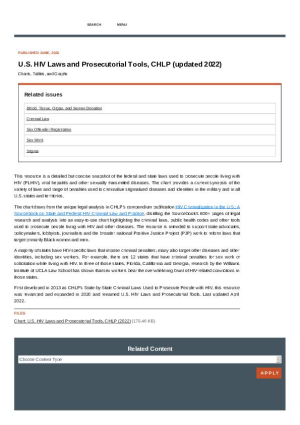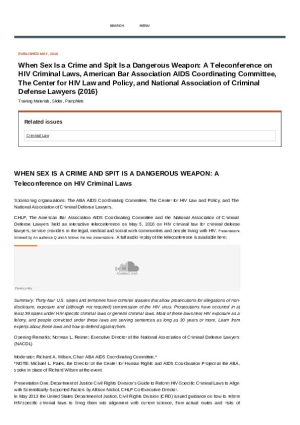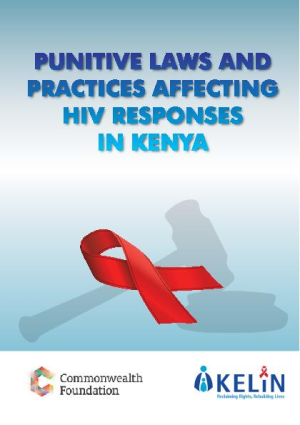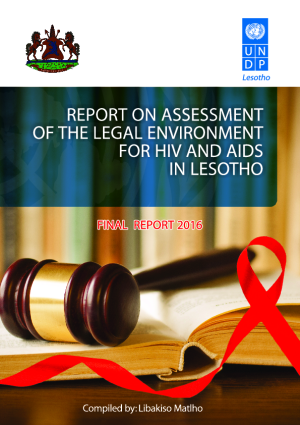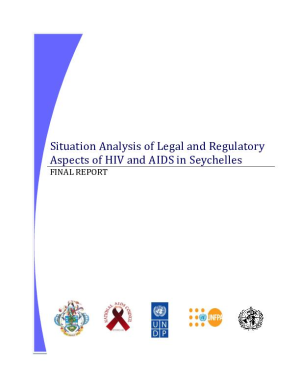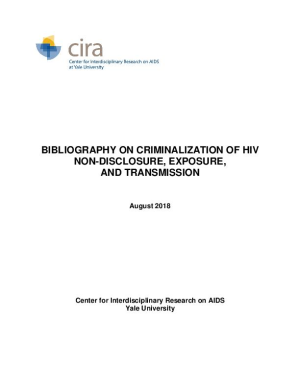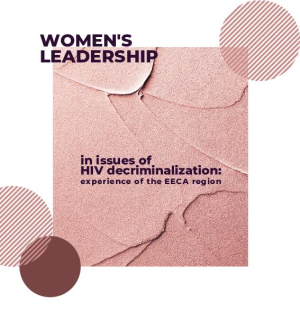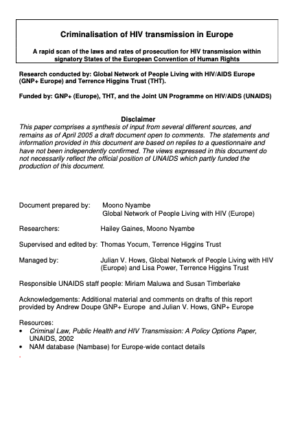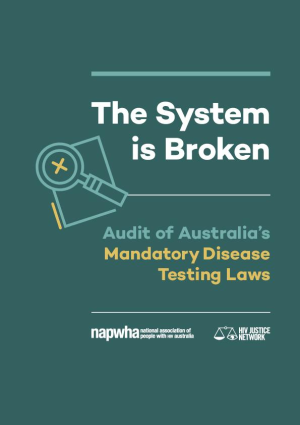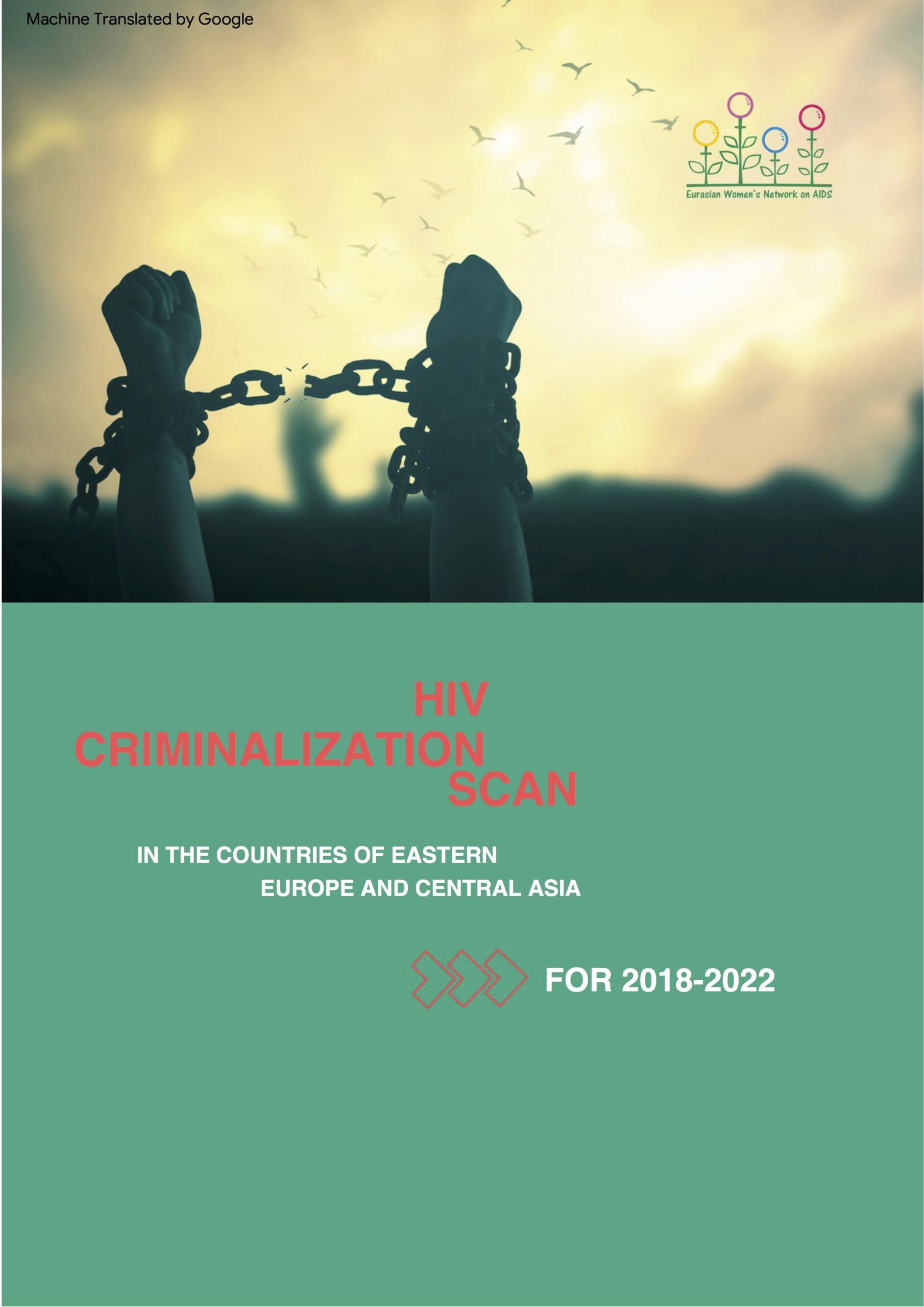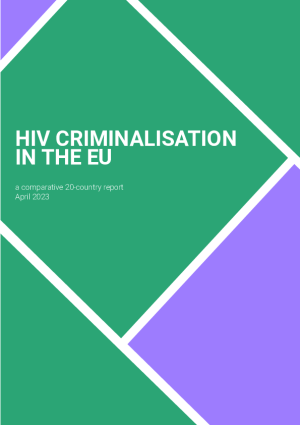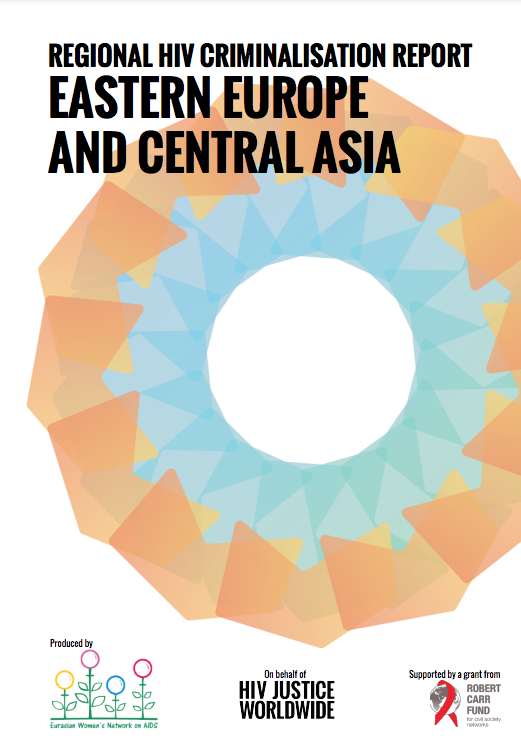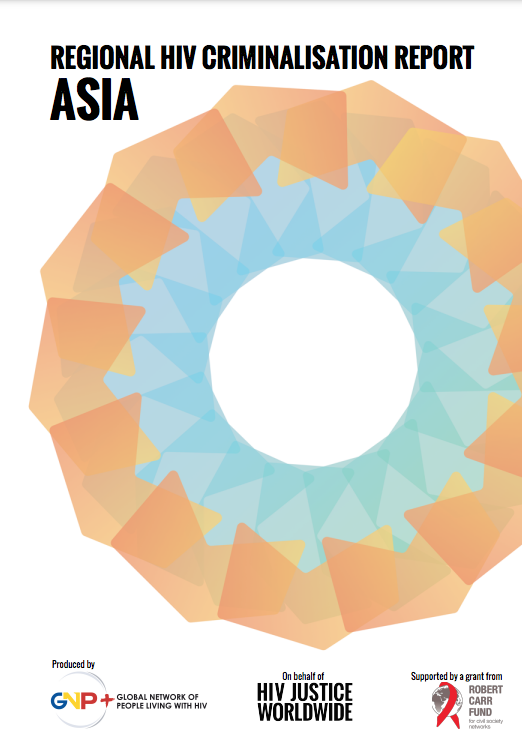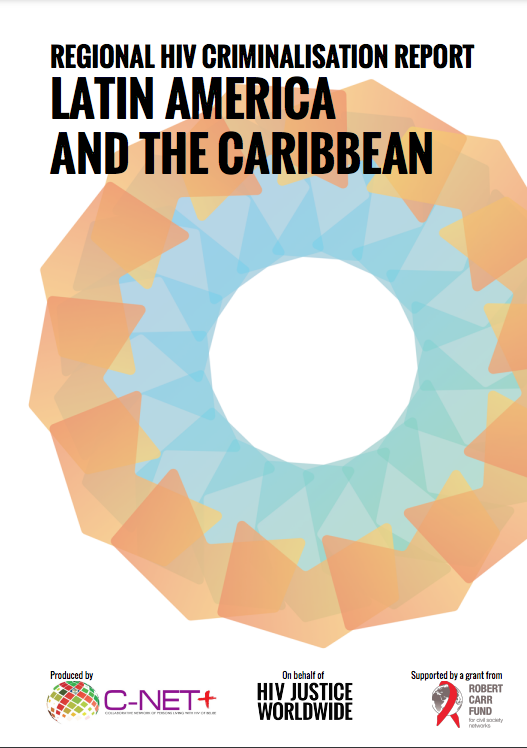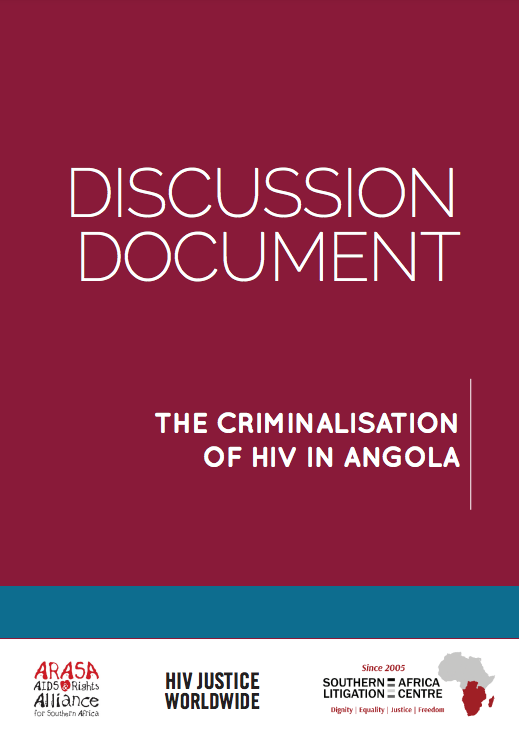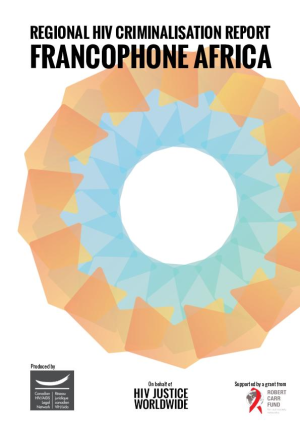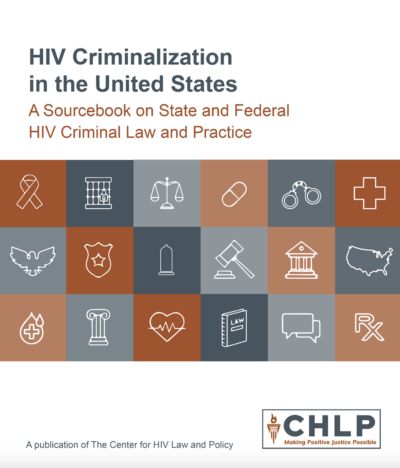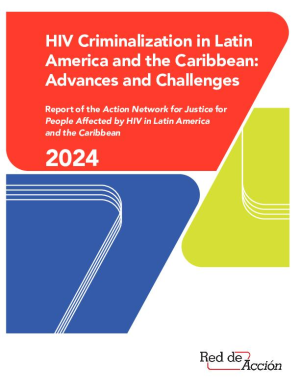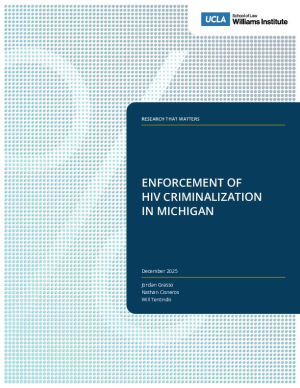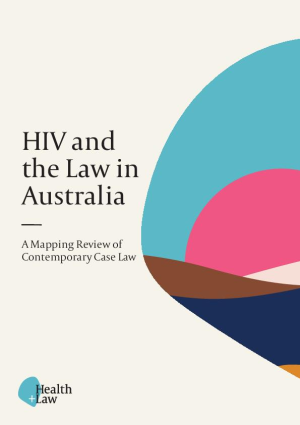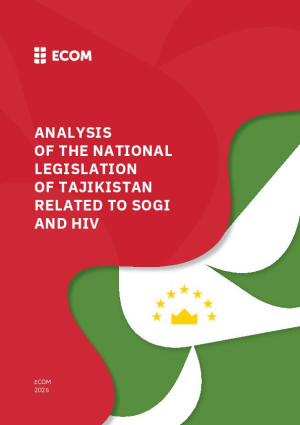This chart from the Center for HIV Law and Policy, developed in 2013 and last updated in 2022, details each U.S. state’s HIV-specific laws in relation to various areas including spitting, biting, sharing needles, sex, and sex work, as well as HIV-specific sentence enhancement.
Law, cases and legal analysis
The legal environment
Comparative Sentencing Chart on HIV Criminalization in the United States
This chart, published by the Center for HIV Law and Policy in 2012, compares U.S. legislation on sentencing for HIV exposure, non-disclosure, and transmission with laws punishing drinking and driving, reckless endangerment of others, and vehicular homicide, showing HIV exposure frequently carries far higher sentences than more dangerous crimes.
When Sex is a Crime and Spit is a Dangerous Weapon: A Snapshot of HIV Criminalization in the United States
Map by the Center for HIV Law and Policy showing details of U.S. states with HIV specific laws, HIV-related prosecutions, sentence enhancement provisions, and sex offender registration.
Punitive laws and practices affecting HIV responses in Kenya
Analyses punitive laws and policies undermining the effective delivery of services to PLHIV and those at risk of HIV infection. Flags laws and policies that violate Constitutional rights. Sets out an advocacy agenda for policy and legislative reform and improvement of law enforcement practices and community understanding of criminalisation issues.
Criminal laws on sex work and HIV transmission: Mapping the laws, considering the consequences
Presents a public health law mapping of U.S. states that mandate HIV testing and criminalize HIV positive sex workers. Shows HIV transmission and exposure laws interact with sex work laws to compound criminal penalties for people charged with prostitution related crimes. Argues that decriminalization of sex work and HIV transmission and exposure is integral to effectively address the HIV epidemic.
Assessment of Legal, Regulatory & Policy Environment for HIV and AIDS in Malawi
Designed to help governments and civil society review laws and policies based on human rights, and increase capacity to achieve enabling legal environments. Includes recommendations on criminalisation at pages 120-122.
Report on assessment of the legal environment for HIV and AIDS in Lesotho
Designed to help governments and civil society review laws and policies based on human rights, and increase capacity to achieve enabling legal environments. Includes recommendations on criminalisation at p.38.
Situation Analysis of Legal and Regulatory Aspects of HIV and AIDS in Seychelles
Designed to help governments and civil society review laws and policies based on human rights, and increase capacity to achieve enabling legal environments. Includes recommendations on criminalisation at p.88.
Legal Reforms, Social Change: HIV/AIDS, Human Rights and National Development in Jamaica
Designed to help governments and civil society review laws and policies based on human rights, and increase capacity to achieve enabling legal environments. Includes recommendations on criminalisation at p.73.
Bibliography on Criminalization of HIV Non-Disclosure, Exposure, And Transmission
Overview of resources outlining criminal laws and analyses of case laws; empirical research in the US and Canada; legal and public health analyses; guidance, fact sheets and talking points; policy and consensus statements, and other relevant references on criminalization in a North American context.
Women’s Leadership in issues of decriminalization: Experience of the EECA region
The compendium brings together research from the women's community, examples of documented personal stories and court cases. All the collected materials demonstrate how criminalisation of HIV is a global problem and how it is linked to gender-based violence. Experts believe that criminalising laws do not protect against HIV infection, but only make women worse off in society.
- Alternative links
- Женское лидерство в вопросах декриминализации ВИЧ: опыт региона ВЕЦА
HIV criminalisation laws around the world
HIV criminalisation is a global phenomenon, with problematic legislation in every region of the world. Countries criminalise people with HIV for transmission, exposure and/or non-disclosure of HIV status. This page provides a brief overview with global examples and a link to more detailed and up-to-date information by country.
GNP+ and THT. Criminalisation of HIV transmission in Europe: A rapid scan (2005)
This paper, prepared by Moono Nyambe at GNP+, and managed by Julian Hows (GNP+) and Lisa Power (Terrence Higgins Trust) comprised a synthesis of input from several different sources, pubished in April 2005 as a draft document open to comments. The statements and information provided in this document are based on replies to a questionnaire and have not been independently confirmed. The views expressed in this document do not necessarily reflect the official position of UNAIDS which partly funded its production.
Respondents from 41 out of 45 countries provided information for the study. Of the respondents from the 41 countries that were able to provide information, it was reported that in at least 36 countries the actual or potential transmission of HIV can constitute a criminal offence. This supported anecdotal evidence that increasingly the law is seen as a tool for regulating conduct that can lead to HIV transmission. In 21 of these countries, it was reported that at least one person has been prosecuted.
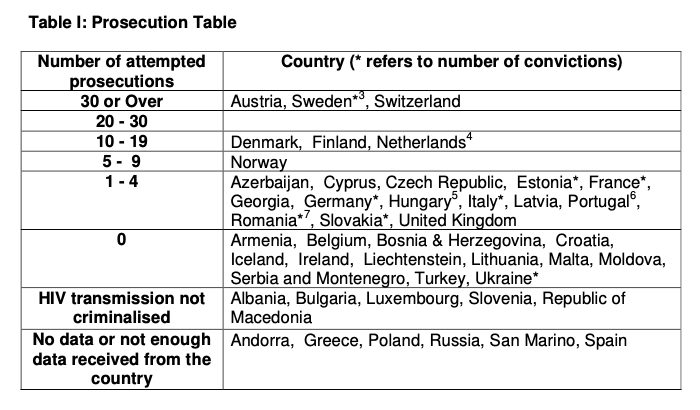
The System Is Broken – Audit of Australia’s Mandatory Testing Laws
Audit, led by Sally Cameron, HIV Justice Network’s Senior Policy Analyst, on behalf of HJN and the National Association of People with HIV Australia (NAPWHA) revealing that mandatory testing laws are at odds with national HIV testing policy and are operating outside the structured and highly successful HIV responses managed by clinicians and departments of health. The audit found that in many instances, the laws, their implementation, and monitoring include numerous structural failures, usually occurring in multiple states.
Analysis of the national legislation of the Georgia related to SOGI and HIV
HIV Criminalization Scan in the countries of Eastern Europe and Central Asia
This report, produced by EWNA, focuses on the criminalisation of HIV transmission, which remains a serious human rights concern in EECA, and includes findings from country informants, including women living with HIV, on laws and policies that criminalise people living with HIV in the EECA region. The report is based on data from 11 countries in the EECA region: Armenia, Belarus, Estonia, Georgia, Kazakhstan, Kyrgyzstan, Moldova, Russia, Tajikistan, Ukraine and Uzbekistan.
Please note that this report was machine translated via Google translate.
- Alternative links
- Russian
HIV Criminalisation in the EU – A comparative 20 country report
In 2020, AAE published a comparative 10-country report on HIV criminalisation, which provided a basis for future advocacy activities on the issue. The current report builds upon the 2020 report, while adding the data from new 10 EU Member states. The report includes information on the impact of legislation introduced during the COVID-19 pandemic, as well as trends, developments, and expected changes regarding the criminalisation of HIV.
Regional HIV Criminalisation Report – Eastern Europe and Central Asia
This report analyzes the current legal environment in regards to HIV criminalization in Eastern Europe and Central Asia, focusing on reviews of 7 countries: Belarus, Georgia, Kazakhstan, Moldova, Russia, Ukraine and Uzbekistan, and performs a more limited review on 2 more countries Tajikistan and Estonia.
Regional HIV Criminalisation Report: Asia
This report produced by GNP+ on behalf of HIV JUSTICE WORLDWIDE provides an update on HIV criminalization in the legal environment and documents HIV criminalization prosecutions in the Asia region.
Regional HIV Criminalisation Report: Latin America and the Caribbean
This report produced by C-Net+ on behalf of HIV JUSTICE WORLDWIDE maps and documents the existence of laws, practices and policies that impact on responses to HIV.
The Criminalisation of HIV in Angola – Discussion document
This brief has been prepared for Civil Society Organisations (CSOs) working on HIV and human rights in Angola, to contribute to discussions around criminalisation of HIV in the country. It sets out concerns regarding the criminalisation of HIV transmission, exposure and non-disclosure in general, based on compelling scientific developments and the position of international human rights and public health experts. It further examines the relevant laws and their application in Angola, provides alternatives to criminalisation and concludes with specific recommendations regarding the reform of such laws in the country.
This brief is also available in Portuguese.
- Alternative links
- Portuguese
Regional HIV Criminalisation Report: Francophone Africa
The 3 first pages of this report are an Executive Summary in English of the findings from a HIV criminalisation mapping exercise in Francophone Africa, conducted between May and September 2017. The full report in French starts from page 4.
Factsheet Uzbekistan 2022
The Republic of Uzbekistan has repeatedly received recommendations from the treaty bodies to amend the Criminal Code and repeal both Articles 113 and 120 as such that lead to systematic violations. The Republic of Uzbekistan systematically ignores all such comments and recommendations, despite having committed to comply with international regulations.
This factsheet summarises violations from international regulations and recommendations from the treaty bodies.
8th Symposium on HIV, Law and Human Rights
The report of the HIV Legal Network's 8th HIV, Law and Human Rights Symposium held in 2019 summarizes the discussions of the Forum where survivors of HIV criminalization shared their experiences and where experts in the field presented updates on the current state of HIV criminalization in Canada, the latest scientific developments surrounding HIV transmission and the future of advocacy efforts in the country.
A Comparative Look at HIV Laws in the Deep South: Mississippi vs. Tennessee, Alabama, and Louisiana
The Deep South has long been grappling with the HIV epidemic. While significant strides have been made in HIV prevention and treatment nationwide, the legal landscape regarding HIV varies considerably from state to state. In this blog post, we will compare Mississippi’s HIV laws with those of other Deep South states, namely Tennessee, Alabama, and Louisiana. Understanding how these states approach HIV-related legislation can shed light on the progress made and areas that still need attention in Mississippi.
HIV Criminalization in the United States: A Sourcebook on State and Federal HIV Criminal Law and Practice, CHLP (updated January 2024)
"This resource for lawyers and community advocates outlines punitive laws, policies, and cases affecting people living with HIV (PLHIV) and other communicable diseases in all 50 states, the military, federal prisons, and U.S. territories. This Third Edition of the Sourcebook was originally published in 2017 and was updated in January 2024." CHLP
HIV Criminalization in Latin America and the Caribbean: Advances and Challenges
The 2024 report by the Action Network for Justice for People Affected by HIV/AIDS (Action Network) documents legal cases in the region where individuals are penalized for conduct linked to their HIV status, even in the absence of evidence of transmission or intent to cause harm. The report also notes instances involving serious offenses such as sexual violence or pedophilia, which the Action Network unequivocally condemns.
Enforcement of HIV Criminalization in Michigan
Using data obtained from the Criminal History Record database maintained by the Michigan State Police Criminal Justice Information Center, this study examines the enforcement of HIV nondisclosure laws from 1991 to 2024.
HIV and the LAW in Australia: National Audit
This is an audit of Australian laws and policies undermining the goals and key areas of action of the National HIV Strategy. This audit deals mainly with three topics, which have a substantial and adverse impact on persons with HIV as well as other marginalised communities and the broader Australian population. These laws: criminalise HIV transmission, exposure and the failure to disclose HIV status to a sexual partner; define consent in a way that exposes people with HIV to criminalisation; and enable Mandatory Disease Testing (MDT) that adversely impacts people with HIV. For each of these topics, this audit: sets out the relevant laws of each state and territory in Australia; notes the key issues in the area; and outlines suggestions on law reform options.
HIV and the Law in Australia: A Mapping Review of Contemporary Case Law
This report shows that HIV-related legal matters arise across a spectrum of both public and private law, including anti-discrimination law, wills and estates, and tort law. In this review, 281 relevant records from all Australian jurisdictions were uncovered spanning a wide range of areas of law. Migration law was an area where a significant number of HIV-related cases were identified, demonstrating a clear relationship between HIV status and the determination of visa-related questions before a decision-maker or judge. Although the results reported here indicate that HIV-related legal matters extend well beyond those related to the criminal law, at the same time, the prosecution of people living with HIV for transmission-related offences remains a feature of the criminal law.
Analysis of the National Legislation of Tajikistan Related to SOGI and HIV
This comparative study examines the legal and institutional obstacles that restrict the rights of LGBT people and people living with HIV. Building on a 2020 baseline, it analyses legislative developments and practical implementation between 2020 and 2025. The research uses an updated methodology combining questionnaires from local partners in Tajikistan, expert interviews, and case studies, alongside judicial data, government statistics, NGO and human rights reporting, activist testimonies, media analysis, and international human rights documentation. Particular focus is given to how laws and law enforcement affect freedom of association, access to justice, healthcare (including HIV services), freedom of expression, and protection from discrimination.

